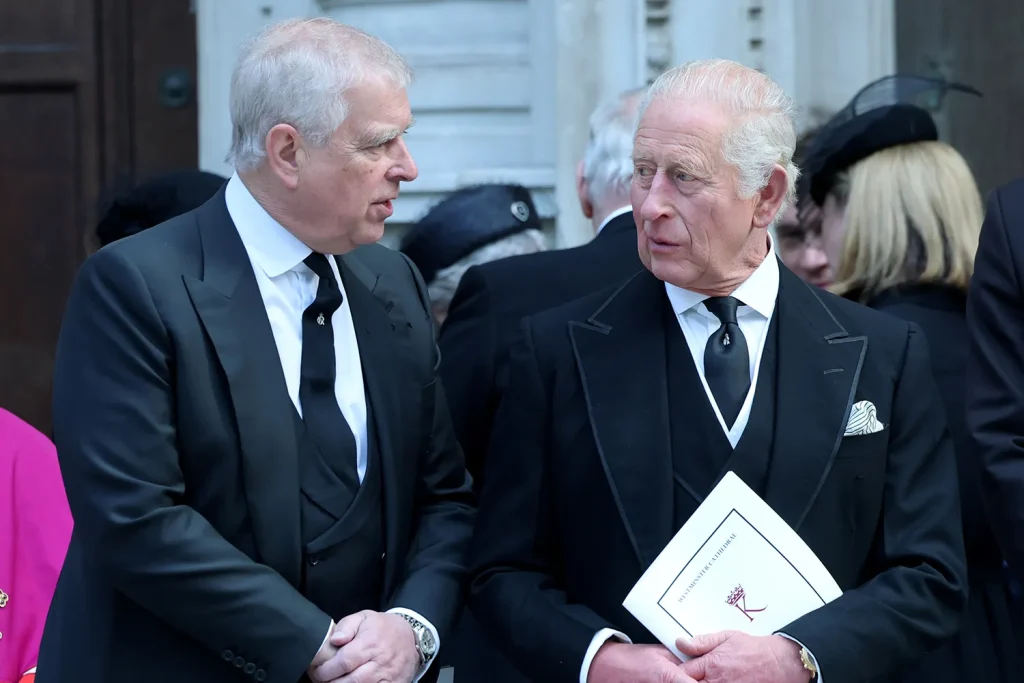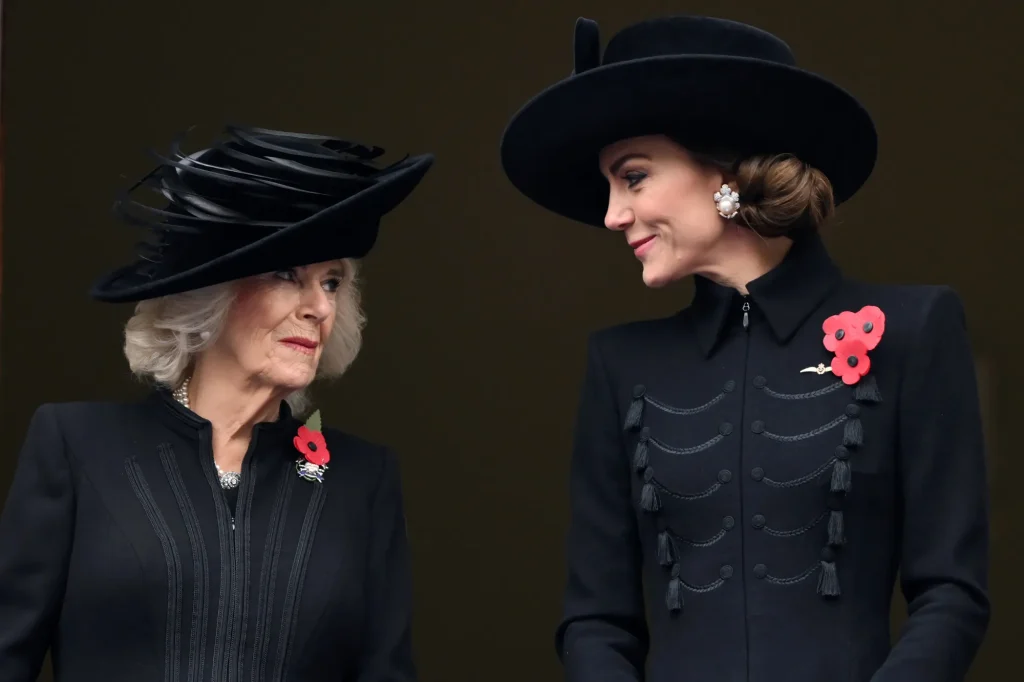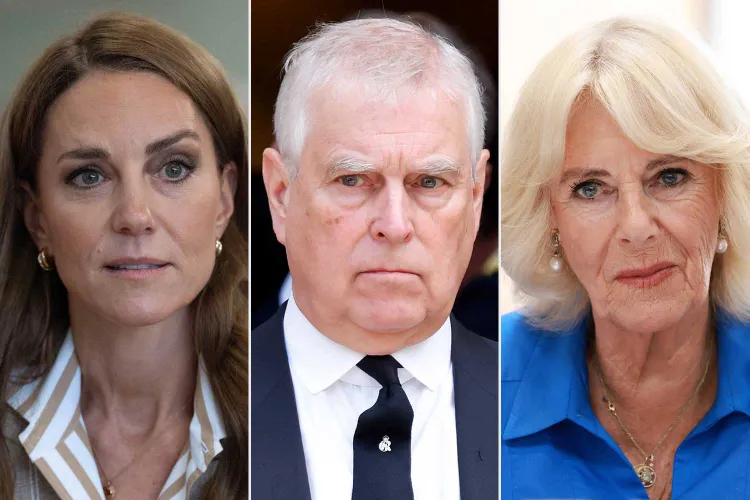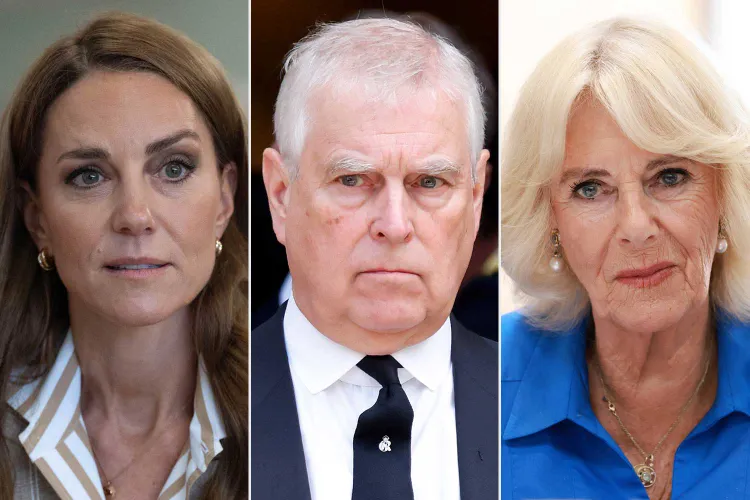How Prince Andrew’s Royal Title Removal Became a Family Decision Involving King Charles, Queen Camilla, and Kate Middleton
When Buckingham Palace officially confirmed that Prince Andrew was being stripped of his remaining royal titles and privileges, it marked one of the most dramatic turning points in recent royal history. While the announcement was presented as a decision made by King Charles, palace insiders have revealed that it was, in truth, a collective family choice — one that reflected quiet but powerful influence from key members of the royal household, including Queen Camilla and the Princess of Wales, Kate Middleton.

The removal of Prince Andrew’s titles came after years of mounting scrutiny surrounding his associations and public controversies. Once known as the Duke of York, Andrew had already stepped back from royal duties in 2019 following widespread backlash. But this latest move, which included losing his official residence and ceremonial honors, represented something final — a closing of the royal chapter of his life.
According to a source close to the King who spoke with People, the tone and wording of the palace’s announcement suggested more than just the hand of Charles. “You could sense a female touch in the statement,” the insider said, hinting that both Queen Camilla and Kate Middleton were involved in the discussions leading up to the decision. The source described the final message as “measured, respectful, but unmistakably resolute” — a tone consistent with the influence of the two most senior women in the monarchy today.
Kate Middleton, who has steadily grown into one of the most respected figures within the royal family, is known for her thoughtful but firm approach to sensitive matters. Her presence during private family discussions reportedly helped steer conversations toward long-term stability and public integrity. Those who know her well say she understands the fine balance between personal compassion and the preservation of the monarchy’s reputation — a skill that’s become essential in an era of intense public scrutiny.

Queen Camilla, meanwhile, has become King Charles’ most trusted confidante in matters of judgment and optics. Having endured her own decades-long battle with public perception, she understands better than most how reputations can shape — and threaten — the future of the monarchy. Sources suggest she encouraged a tone of quiet dignity in the announcement, ensuring that while Andrew’s removal was decisive, it avoided unnecessary public humiliation.
The decision wasn’t made lightly. Family meetings over the issue reportedly took place over several months, with discussions centered on how to balance compassion for Andrew as a brother and father with the responsibility of protecting the Crown’s image. King Charles, often described as a deeply loyal but pragmatic leader, ultimately concluded that his brother’s continued association with royal titles would do more harm than good to the institution he now leads.

In the end, the official announcement reflected both heart and strategy — a message crafted to signal accountability without cruelty. “This was not about exile,” one palace insider explained, “but about setting clear boundaries for the future of the monarchy.”
For Prince Andrew, the loss of his titles means stepping further into private life, away from the public eye that once defined him. For King Charles, Queen Camilla, and Princess Kate, it’s a symbolic step toward ensuring the monarchy evolves with a sense of responsibility and unity.
Observers say the entire episode reflects the modern direction of the royal family — one that values transparency and collective decision-making over tradition and hierarchy. It’s a reminder that behind the grandeur of royal announcements lies a family navigating its own moral compass, striving to adapt to the expectations of a new generation.
In the wake of the decision, palace sources insist there is no animosity — just a shared understanding that the monarchy’s strength depends on accountability and renewal. “It’s not about punishment,” one royal aide said quietly. “It’s about the future.”



